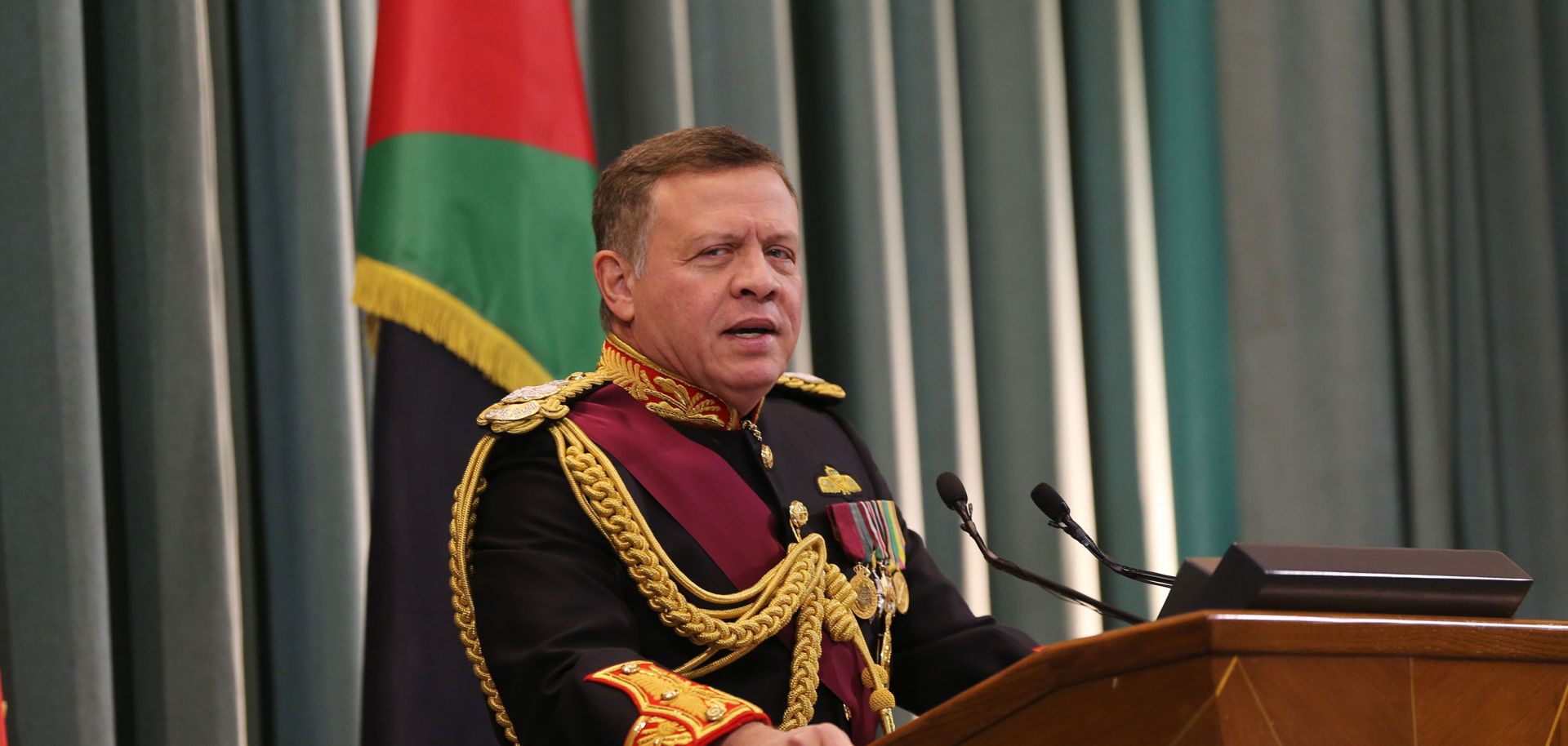ASSESSMENTS
Jordan's King Walks a Fine Line Between Domestic and International Demands
Dec 5, 2018 | 11:00 GMT

Jordan's King Abdullah II attends the opening of the country's parliament in 2016 in Amman, Jordan.
(JORDAN PIX/ Getty Images)
Highlights
- Jordan's economic and nationalist protest movements are both gaining strength, demanding changes to Amman's policies that will create potential clashes with the country's international donors.
- Jordan's key contributors — including the United States, Saudi Arabia and the United Arab Emirates — will want the kingdom to pursue policies that are unpopular with its citizens.
- The divide between international and domestic desires could create a crisis for Jordan's monarchy if the country's sponsors attempt to push Amman too far.
Subscribe Now
SubscribeAlready have an account?
